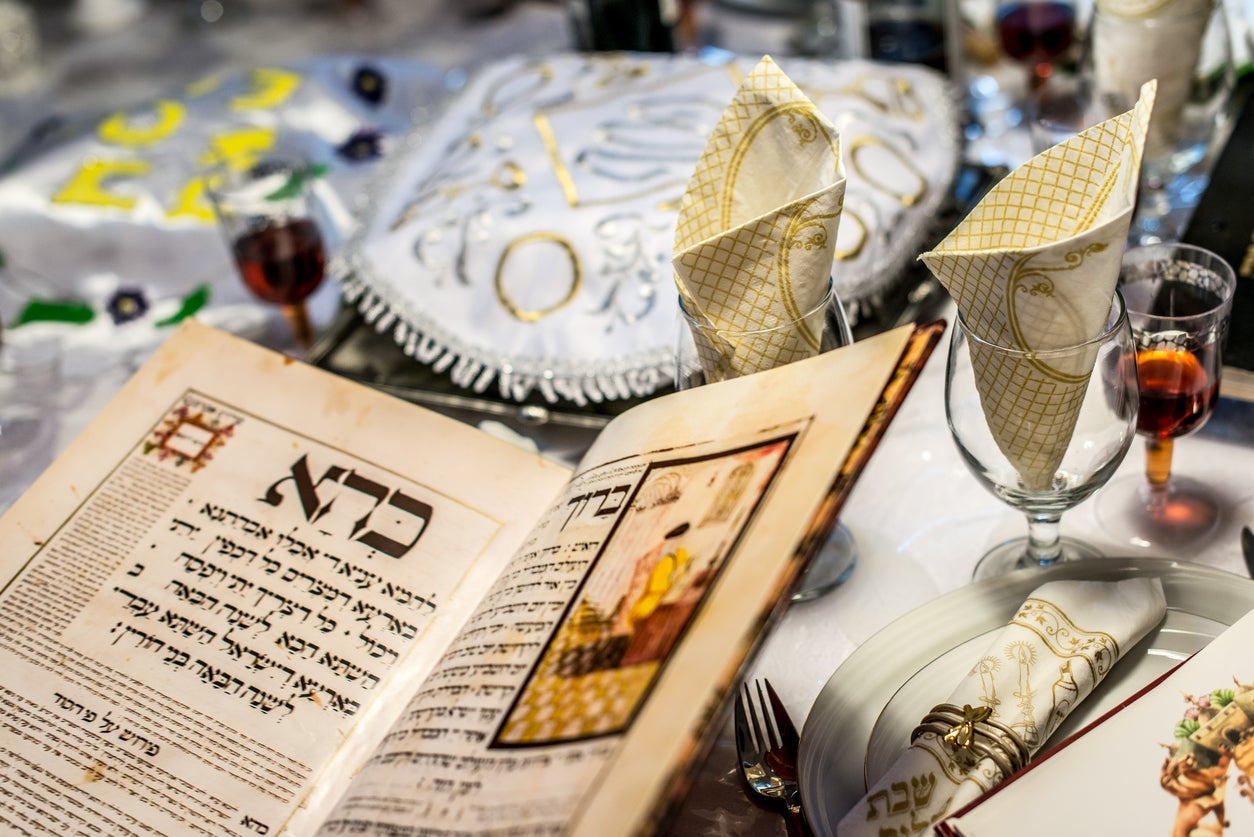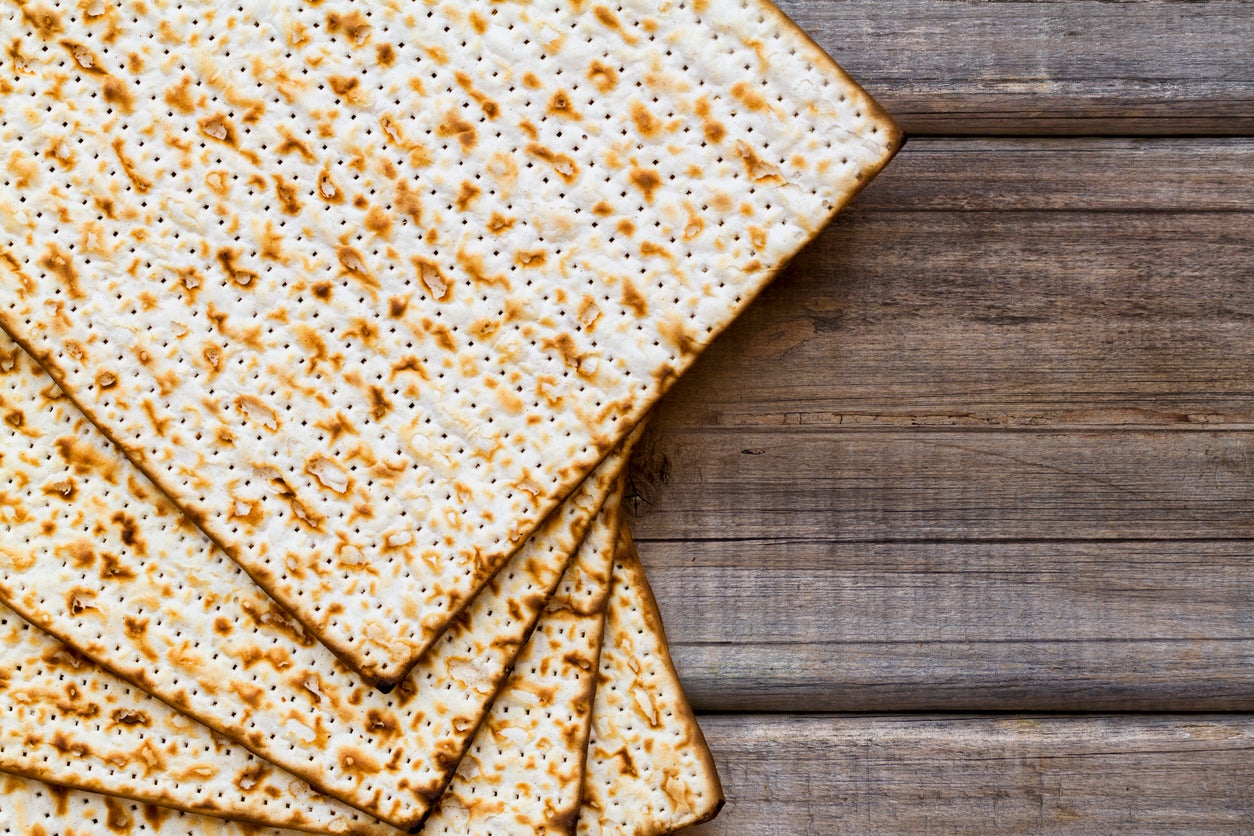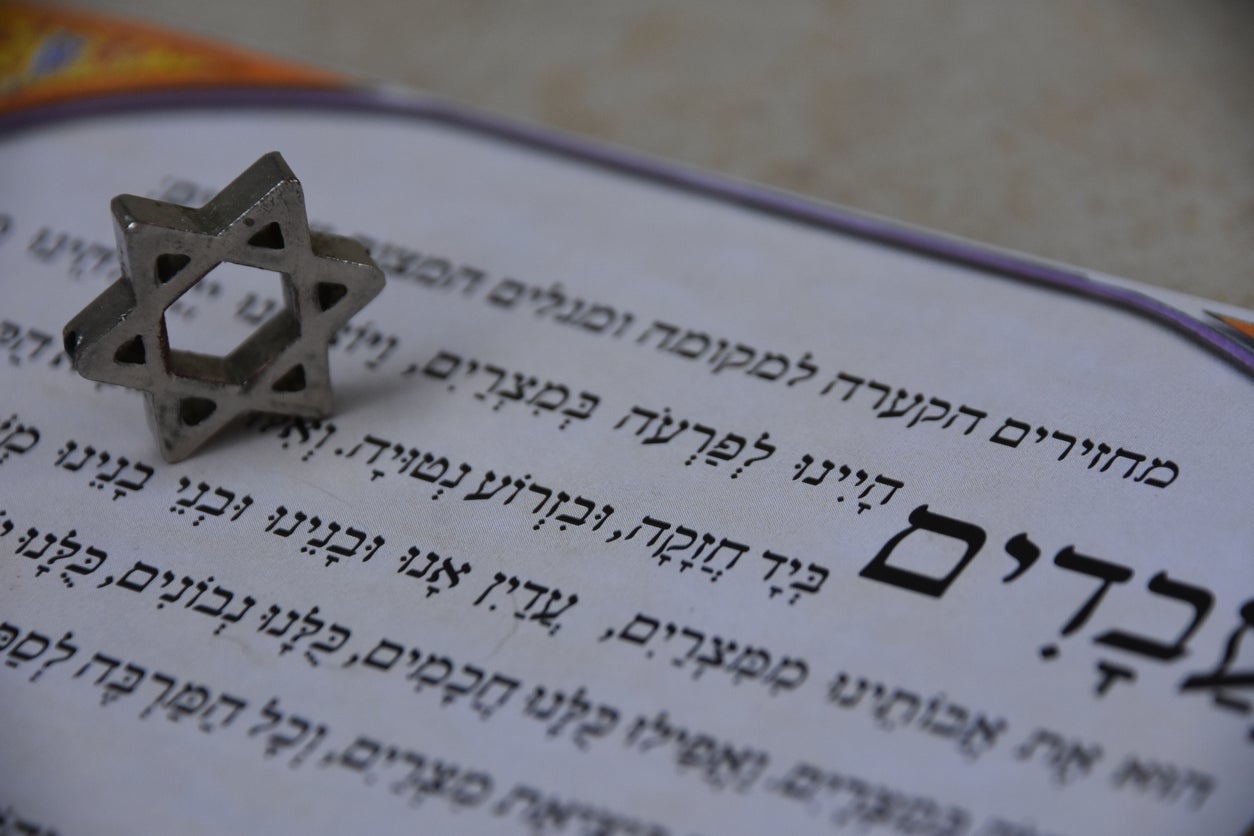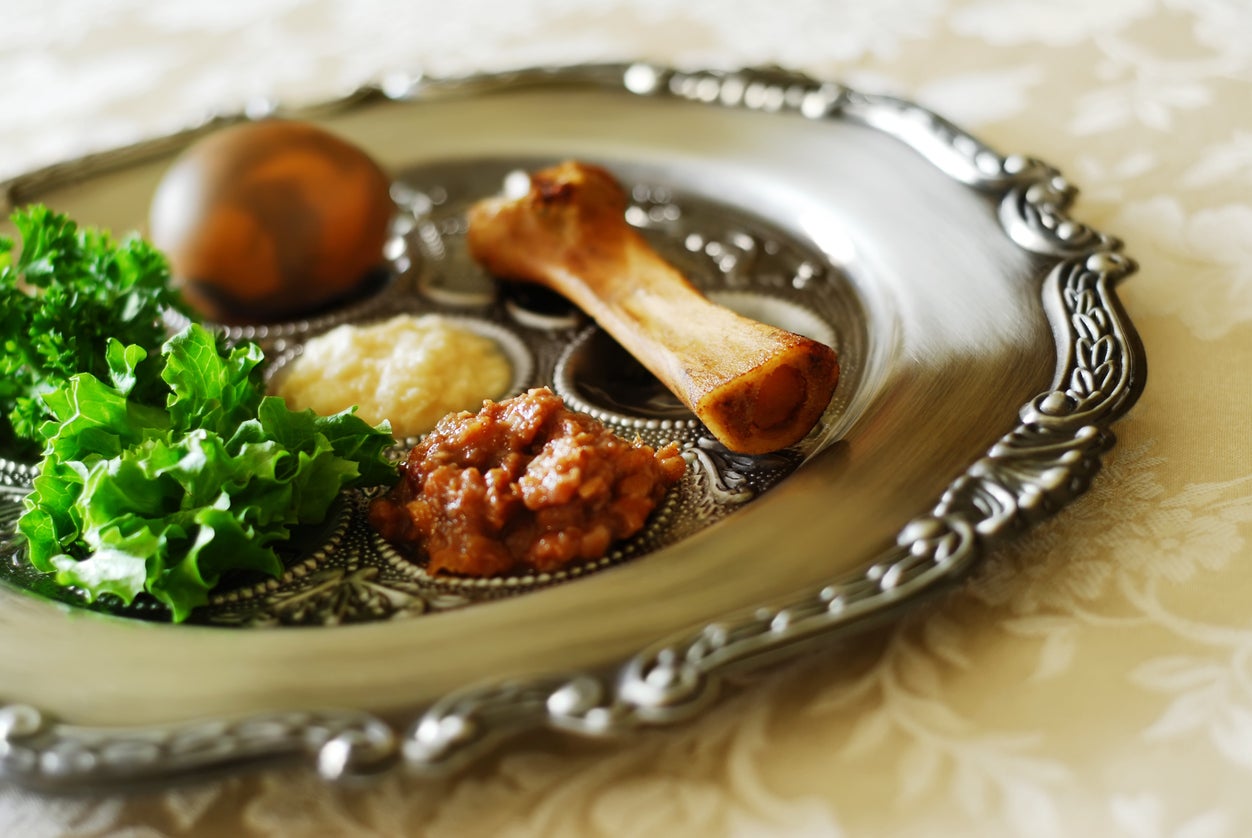Passover 2021: When does the Jewish festival take place and how is it celebrated?
The ancient Jewish festival of Passover usually lasts for eight days

Your support helps us to tell the story
From reproductive rights to climate change to Big Tech, The Independent is on the ground when the story is developing. Whether it's investigating the financials of Elon Musk's pro-Trump PAC or producing our latest documentary, 'The A Word', which shines a light on the American women fighting for reproductive rights, we know how important it is to parse out the facts from the messaging.
At such a critical moment in US history, we need reporters on the ground. Your donation allows us to keep sending journalists to speak to both sides of the story.
The Independent is trusted by Americans across the entire political spectrum. And unlike many other quality news outlets, we choose not to lock Americans out of our reporting and analysis with paywalls. We believe quality journalism should be available to everyone, paid for by those who can afford it.
Your support makes all the difference.Passover, otherwise known as Pesach in Hebrew, is regarded as one of the most important festivals in Judaism.
Every year, Jewish families celebrate the festival by sitting around the Seder table and recounting how Moses led the Jewish people out of Egypt following years of slavery.
So when does Passover take place this year, what's the history behind it and how is it observed? Here’s everything you need to know:
When does it take place?
Passover begins on Saturday 27 March this year and lasts for seven or eight days.
The festival is traditionally observed for eight days by many Jewish people around the world, including those who left Israel as part of the Jewish diaspora.
For those celebrating Passover for eight days, it will end this year on the evening of Sunday 4 April.

In the Torah (the body of Jewish scripture), Passover begins on the 15th day of the month of Nissan, the day in the Hebrew calendar on which the Jewish departed from Egypt thousands of years ago.
It’s no coincidence that the observance coincides with the Christian festival of Easter, with Good Friday falling a couple of days after the first day of Passover this year.
In the ancient languages of Latin and Greek, Easter was called Pascha, which derives from the Hebrew word Pesach.
How important is it?
Raymond Simonson, CEO of north London Jewish community centre JW3, says that Passover is one of the most important Jewish festivals.
“Even the most secular Jews, who might not celebrate any other festival - they might not fast on Yom Kippur, or go to synagogue on Jewish New Year,” he says.
“If there’s one festival they’ll do it’s more likely to be Pesachthan anything else.”

What’s the story of Passover?
During Passover, Jewish people remember how Moses freed the Israelites from slavery under the reign of the Egyptian Pharaohs, as stated by the Torah.
Moses was raised as the adopted son of the Pharaoh’s daughter, who found him in an ark by a riverbank in Egypt.
Following orders by the Pharaoh to drown all male Hebrew children in the river Nile, Moses' mother had given him away in the hopes that he would survive.
As an adult, Moses discovered his true identity and was instructed by God to lead the enslaved Jewish people from Egypt to Canaan, which was regarded as the “promised land”.
Moses proceeded to ask the Pharaoh to let his people go, which the Pharaoh initially refused.
According to the Book of Exodus, Moses warned the Pharaoh that if he failed to free the Israelites, Egypt would be hit by a host of terrible plagues.
After the people of Egypt were subjected to 10 plagues, including blood, frogs, boils, locusts, darkness and the death of every firstborn son, the Pharaoh eventually relented and allowed the Jewish people to leave Egypt with Moses.
The Jewish people spent 40 years travelling in the desert before reaching the “promised land”.
Why is it called Passover?
Jewish people believe that when the Pharaoh initially turned a blind eye to the plagues wreaking havoc on his people, God then inflicted the worst plague of all — the death of every firstborn male in Egypt.
In order to protect the firstborn sons of the Israelites, God instructed Moses to tell the Jewish people to mark their front doors with lambs' blood.
God then proceeded to "pass over" the houses that had been daubed with lambs' blood, thus sparing the firstborn Israelite sons from the deadly plague.

How is it celebrated?
During Passover, Jewish families come together for a traditional meal called the Seder, which means “order”, because everything is done in a particular order.
This order is followed by reading instructions in a book called the Haggadah.
“The whole theme of the special meal on the Sedernight is to remember the exodus of Egypt as if we were there,” explains Simonson.
“It’s not when ‘they’ were, our ancestors. It’s ‘when I left Egypt, this is what happened to me.’ It’s educational and experiential.
“We must remember what it was like when we were slaves, so we must fight so there are no more slaves and everyone is free."
The Seder plate includes a variety of foods, each which is symbolic.
The lamb bone represents the blood of the lamb that adorned the doors of the Jewish people as God passed over them; the roasted hard-boiled egg is a symbol of mourning; the maror (bitter herbs) represents the bitterness the Jews had to endure as slaves; the charoset (a sweet, brown concoction) represents the mortar used to build the Egyptian pyramids; and the dipping of parsley into salt water represents the tears of the enslaved Jewish people.
What is matzah?
According to the Book of Exodus, the Israelites left Egypt in such a hurry that their bread didn’t have time to rise.
This why Jewish people eat unleavened bread during Passover, otherwise known as matzah.
It is traditionally viewed as the bread of the poor, and is therefore consumed to remind Jewish people of the hardships their ancestors endured.
For seven or eight days after the first Seder night, Jewish people abstain from eating all sorts of leavened foods including bread, cakes and muffins.
Some people come up with creative solutions to this, including Simonson.
“I make lasagne but with sheets of matzah instead of pasta,” he says.
During the Seder night, many Jewish children play a game in which one piece of matzah, called the afikoman, is hidden. The child who finds the afikoman at the end of the meal wins a prize.
What other foods and drink are consumed during Passover?
“Whether to eat rice or beans is one of the most discussed customs or traditions,” Simonson states.
“It’s what everyone seems to be talking about at the moment.”
Some grains and other foods, such as beans, peas, corns, rice, chickpeas and sesame, are traditionally prohibited by some Jewish people during Passover. These are known as kitniyot.
However, many Sephardic Jews - Jewish people who can trace their ancestry back to the Iberian Peninsula during the early Middle Ages - continue to eat kitniyot on Passover.
“It depends on your family and background,” Simonson says.
“Every year, more and more people say: ‘Hold on, this kitniyot isn’t forbidden by law in the same way.
“It’s more of a tradition to do with how they were packed in sacks.’”

How do Jewish people prepare for Passover?
As leavened goods are banned during the festival, the weeks leading up to Passover are traditionally spent cleaning.
Every nook and cranny is scrubbed to get rid of even the tiniest forbidden crumb that might lurk there. Some say this tradition is the origin of the more widely known "spring clean".
Many Jewish people use crockery during Passover that has been set aside for especially for the festival.
Join our commenting forum
Join thought-provoking conversations, follow other Independent readers and see their replies
Comments